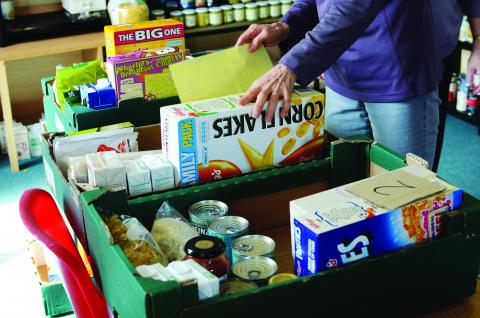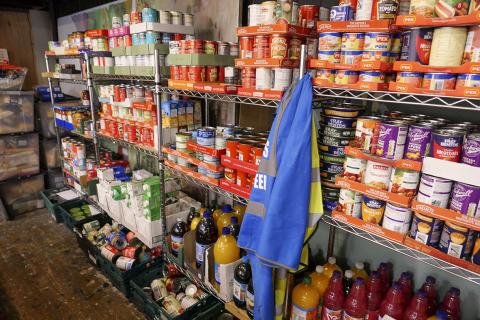Retailers must do more to prevent the cost of living crisis negatively impacting on our children's health
by Shona Goudie
The cost of living crisis is highly likely to be negatively impacting on diets and widening health inequalities
The Food Foundation's most recent survey has found that food insecurity levels in households with children remain unacceptably high with almost one in four (24.4%) households with children reporting experiencing food insecurity in January 2023. Worryingly, there has been no substantial improvement over the winter showing current measures are not sufficient to protect children from the impact of the cost of living crisis on their diets.
Ongoing high levels of food insecurity in the face of the continuing cost of living crisis and high food prices will likely be impacting on UK diets with a number of severe long term health consequences – particularly for low income families who bear the brunt of price rises. Early signs of the impact on diets are apparent in The Food Foundation’s most recent survey. Data released today shows that food insecure households are more likely to be cutting down on buying healthy foods such as fruit (57% vs 11% of food secure households), vegetables (42% vs 6%) and fish (54% vs 14%). Lower income households already consume less of these foods due to their lack of affordability and this is therefore highly likely to further exacerbate these dietary inequalities and the subsequent health consequences. (See our new briefing for more on the impact of the cost of living crisis on dietary inequalities).
There is strong public support for retailers to do more
Our survey also found that there is strong support from parents for retailers to do more to make it easier for them to feed their children well, including reducing prices of healthy foods through price changes and promotions, and making the healthiest options the most affordable:
The Food Foundation is calling on retailers to do more
We believe that supermarkets must ensure that they are doing all they can to:
- Help families who are on very low incomes to secure an adequate diet
- Support families who are not in the poorest category, but are shifting their purchasing because of cost pressures, to switch to healthier and more sustainable options with benefits that outlast the current crisis. Trading down oughtn’t mean that health is sacrificed for price.
We will therefore be calling on retailers in the coming months to act to support families through the cost of living crisis. The Food Foundation’s Kids Food Guarantee is a new roadmap of actions that we would like to see retailers take to guarantee that children can eat well during the cost of living crisis and prevent lasting damage to their health and wellbeing.

Government and Retailers both have an important role to play
Responsibility for ensuring everyone can eat in a way that is not damaging to their health does not just lie with retailers. Government and retailers both have a critical role to play in tackling the cost of living crisis and ensuring everyone can afford and access the food they need. Action is urgently needed in both public policy and business practice to address this crisis.
To ensure that everyone can eat well during the cost of living crisis, The Food Foundation are calling for:
-
Urgent action to ensure that all children in poverty have access to at least one nutritious meal a day at school by expanding the provision of Free School Meals to all children on Universal Credit.
-
Government to set minimum wage and benefits levels at a value that takes into account the cost of a healthy diet and other essentials.
-
Action by retailers to make it easier for people to afford the food they need and rebalance the cost of a basic shopping basket to make the healthy options the most affordable.
Further Information
YouGov survey methodology
All figures, unless otherwise stated, are from YouGov Plc. Total sample size was 10,814 UK adults. Fieldwork was undertaken between 31st January and 3rd February 2023. The survey was carried out online. The figures have been weighted and are representative of all UK adults 18+. The figures presented from the online survey have been analysed independently by The Food Foundation and the London School of Hygiene & Tropical Medicine. Comparison to older figures is from a series of previous surveys conducted with YouGov commissioned by the Food Foundation. Population calculations made by the Food Foundation using 2021 mid-year population estimates (reference).
- We ask the following questions to explore how many households have experienced food insecurity:
- Having smaller meals than usual or skipping meals due to being unable to afford or get access to food
- Being hungry but not eating because due to being unable to afford or get access to food
- Not eating for a whole day due to being unable to afford or get access to food
If they answered yes to any of these three questions, they are classified as food insecure. We ask them if they had experienced this in a) the last month and b) the last 6 months. The questions are based on the United States Department of Agriculture's Food Security Survey module.





